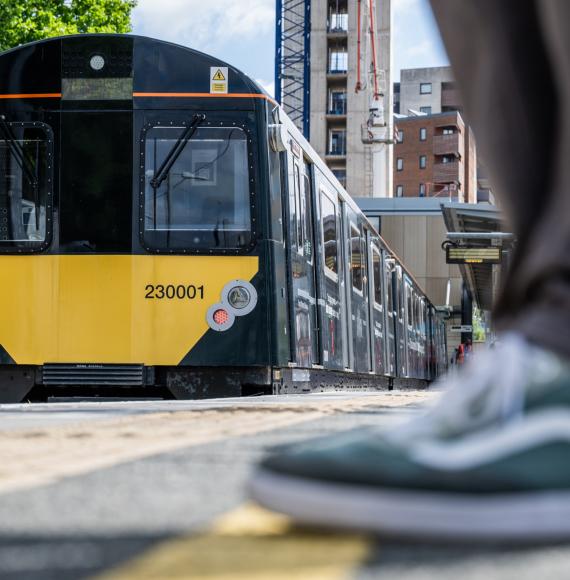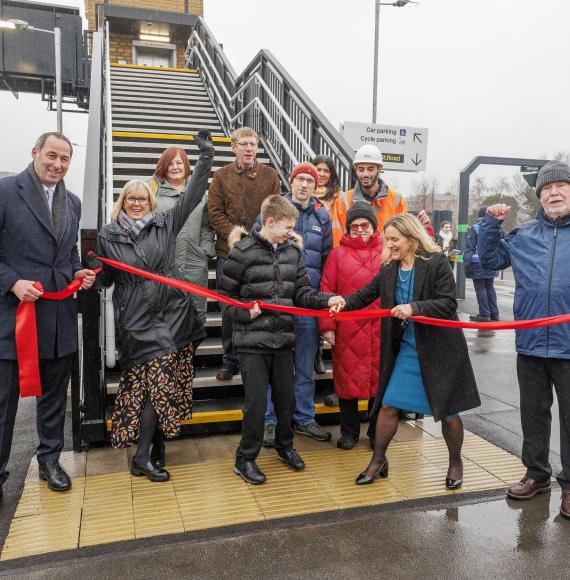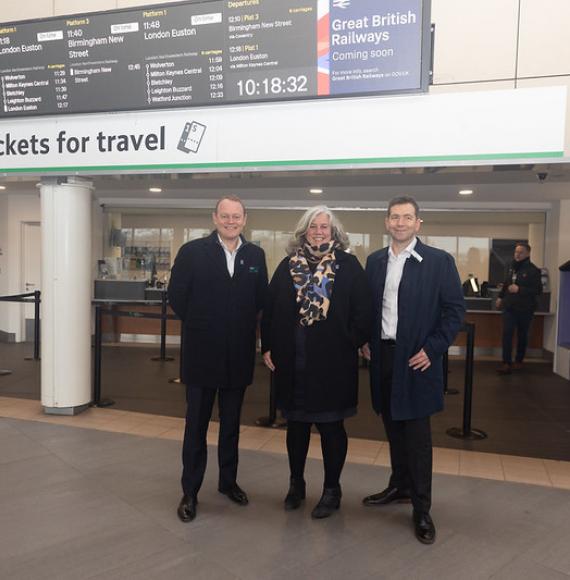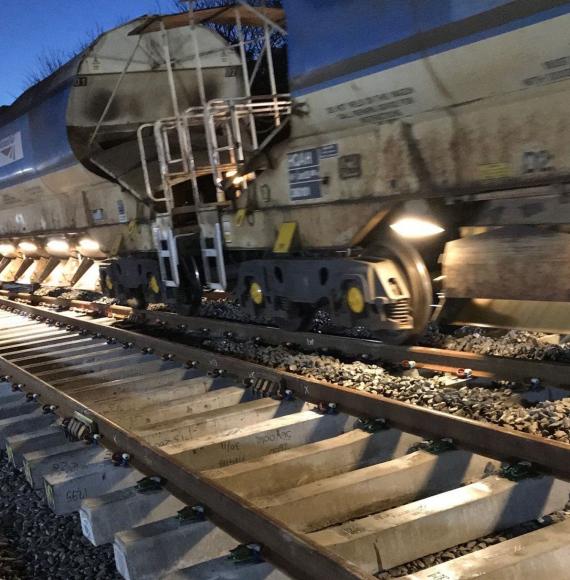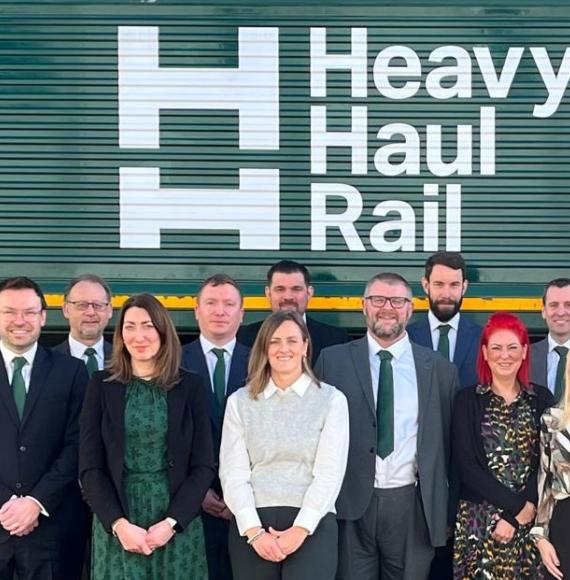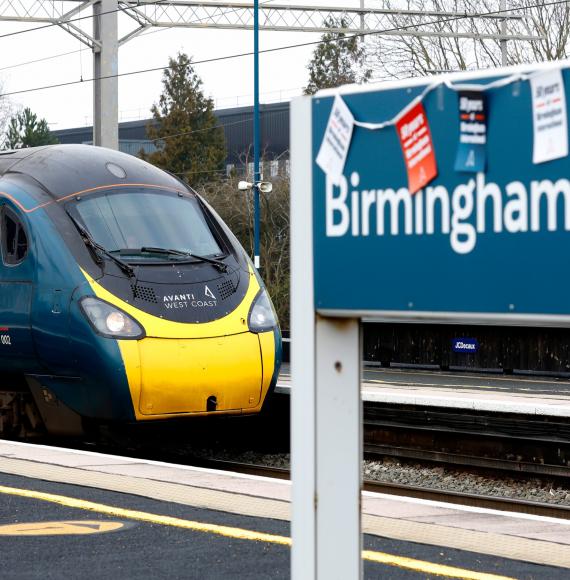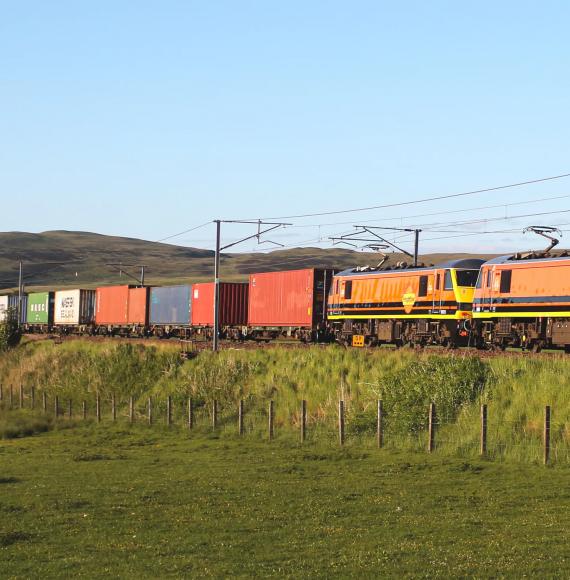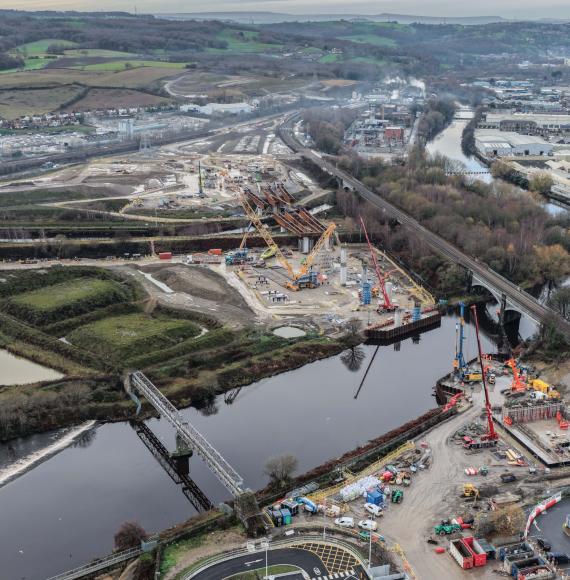A team of researchers from the University of Birmingham, Leeds, Loughborough, and Network Rail have unveiled a new railway switch technology called Repoint, which it hopes will transform the industry.
The technology uses a lift and move mechanism, which includes a passive lock for when the points are in place. This is combined with a stub-switch type layout, which offers advantages in many situations and crucially means the switch is ‘fault-tolerant’, continuing to work even when two of the three actuators, which control the movement of the points, have failed.
This is in stark contrast to conventional railway switches which guide trains from one track to another by a sliding pair of tapered rails horizontally.
The newly published research by the team (now at University of Birmingham, Leeds, Loughborough, and Network Rail) describes the teams development of a digital twin which has been used to show that the design meets the requirements for speed and performance.
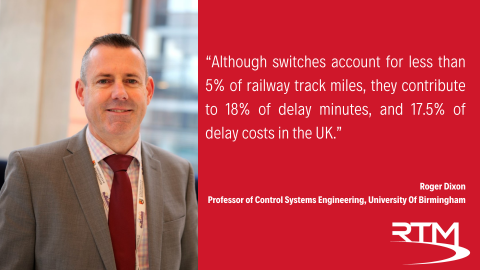
This included testing its fault-tolerance, which was rigorously tested using the cutting-edge digital twin, and was subjected to simulated challenges like power failure. In these tests, even with four out of six actuator motors disabled, Repoint successfully navigated the simulated tracks.
The journey towards Repoint was sparked by a collaborative call from the Engineering and Physics Research Council (EPSRC) and the UK Rail Safety and Standards Board (RSSB) to tackle capacity limitations on existing railways. Professor Dixon, then leading Loughborough University's Control Systems Research Group, saw the pivotal role of switches in this equation and spearheaded the project that would ultimately birth Repoint.
"Traditional switches may only cover 5% of track miles," explains Professor Dixon, "but they contribute a staggering 18% of delay minutes and 17.5% of delay costs in the UK alone.”
The development of Repoint involved close collaboration with industry stakeholders, ensuring the new technology addresses genuine needs and challenges. Insights from operators, maintainers, and designers proved invaluable in crafting a solution that is not only innovative but also practical and adaptable.
Dixon added: “While railway networks continue to carry more passengers and freight, building new track is always difficult and expensive, and increasing the reliability and exploiting the capacity of existing routes is generally the preferred option.”
Repoint has been successfully tested at a test track which demonstrated is compatibility with the network. The team are now seeking partners and funding to design and fully test the repoint system.
Photo Credit: University of Birmingham




